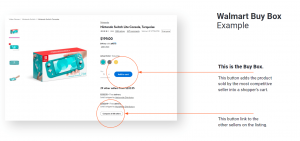The current economy and job market easily affects candidates’ attitudes toward job interviews. Those who pass the initial candidate screening are the lucky ones, so you can only imagine that job interviews generate far more stress than ever. Still, recruiters often find themselves facing candidates who are clearly unprepared and seem not to realize how many things can go wrong during an interview. Based on the experiences of hiring managers, here are top 10 reasons why job interviews tend to go wrong.
1. Candidates are late– It seems really simple, we still see it happen. Candidates coming late for their job interviews will inevitably land on a recruiter’s black list. Showing up on time is a way to communicate the respect towards the company. Arriving 10 minutes before the job interview shows that a candidate is someone you can depend on.
That’s why candidates should make sure that they’re fully prepared to arrive on time. Arriving by car, test your route and give yourself a margin of 20 minutes. Traveling to a different city, it’s best to fly in the night before – a canceled flight isn’t a good excuse for missing a job interview.
2. They avoid networking- Some candidates consider themselves introverted or shy, but that doesn’t mean they should avoid networking altogether. Getting an internal reference gives a great advantage during an interview, where you aren’t a complete stranger anymore. Remember to manage your professional image through social networks relevant to your sector. Be an active participant in ongoing online discussions – don’t count on your profiles to do the job for you.
3. They fail to prepare for the interview- With so much information candidates can find on the web about the employer and job interviews in general, it’s puzzling how some of them seem to come in without any expectations whatsoever. Arriving unprepared, you simply risk losing your opportunity. Lists of standard interview questions are all over the web, so preparing your answers beforehand shouldn’t be a problem.
Having a clear idea about the company which interviews you is one good strategy to excel during a job interview – research its focus areas, future goals and plans. Rehearse your answers, making sure that you always refer to relevant working experience and give examples of projects you worked on.
4. They’re dressed inappropriately- It goes without saying that first impressions count a lot and in reality candidates are evaluated from the very beginning in a job interview. Inappropriate clothing will question your professionalism, qualifications and enthusiasm for the job. Avoid miniskirts, low cut blouses, or rumpled clothes – choose an outfit of simple elegance and create a sharp, professional look. Knowing how to dress in accordance with sector requirements and company culture is a valuable competence that will be noted.
5. They don’t answer questions in a clear manner- Stress is an important factor to count in during a job interview. Some candidates are so stressed that instead of politely listening to the recruiter’s questions, they provide answers that are irrelevant or ramble on about their qualifications. Best impressions are made by those who listen and read the intention of recruiters – this way, they’re able to provide clear and substantial answers to all questions asked.
6. They don’t market themselves- Some candidates find boasting about their achievements unnecessary. This can become a big disadvantage – especially during a job interview, which is the perfect time to demonstrate all those things that don’t land in a resume.
There’s a fine line between confidence and arrogance. In order not to sound conceited, candidates should refer to the opinions of others. Instead of saying something along the lines of “I’m the smartest project manager at my company”, they should modify their statement by including the opinion of a third party – “I have a reputation for delivering my projects before deadlines.”
7. They approach the interview with a wrong attitude- It’s not an understatement to say that job seekers who ooze desperation and sport a negative attitude might not do well during job interviews. Facing a constant stream of rejection, moping over unanswered applications and panicking at the thought of competition isn’t helping at all. In order to land a job, you need to control those feelings and focus on your performance during the interview. Act confidently and make sure this attitude is reflected in your body language.
8. Their body language betrays them- Speaking of body language, we often see candidates fidgeting while waiting for the interview, giving a limp handshake or obsessively avoiding looking directly into our eyes. All these are natural reactions to stress, but part of being a professional is the ability to simply deal with it and sell yourself.
Learn to control those responses and instead show your enthusiasm for the position through your body language. Never cross your arms rather assume an open position and maintain eye contact. Control the pitch and tone of your voice – try to be as natural as possible.
9. They don’t ask relevant questions- All candidates who have ever been to an interview know that the last question is usually: ‘Do you have any questions?’ By saying no, candidates appear to have a lack of enthusiasm or curiosity about the company, its mission, and product.
Before going to an interview, make sure to prepare one or two questions which are relevant to the position – ask about important aspects of the job like training or company culture. Always inquire about the next steps in the hiring process. Recruiters are there to give you information – for instance, you can learn about a potential time frame after which you’re free to reach out and ask about the hiring decision.
10. They forget to follow up- One of the cardinal mistakes many candidates make is not following up after the interview. Unless it’s otherwise specified, remember to send a quick thank you note right after your interview. Thank the recruiter for his time and restate your interest in the position. A creative thank you note can set you apart from other candidates. Think about it – scribbling a note is just a few minutes of your time, but can be invaluable when you get remembered for it and actually land the job.
As you can see, practically all those mistakes come form lack of preparation. When invited to a job interview, candidates should remember that this is the only chance they get to impress recruiters – and that this impression stands behind every hiring decision.
(126)









